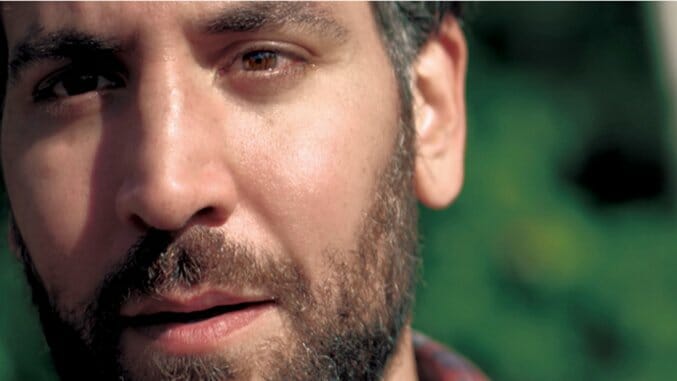Cloud Cult Made a Gorgeous One-Hour Movie with Josh Radnor

We music journalists may be guilty of overusing the word “cinematic” when talking about music, but The Seeker, the new album from Minneapolis band Cloud Cult definitely qualifies with swelling orchestral songs that deal—like most all Cloud Cult albums—with grandiose ideas like the natures of time and love and grief. And if you doubt what any of that has to do with filmmaking, the band puts the argument to rest with the help of director Jeff D. Johnson and actors Josh Radnor and Alex McKenna, who’ve turned frontman Craig Minowa’s music and story into an hour-long, dialogue-free movie, which recently played the Sarasota Film Festival.
Shot in rural Wisconsin by Johnson and co-writer/co-cinematographer Chad Amour, the film follows Grace, a young girl growing into a young woman, haunted by tragedy. We see Grace at three different ages, played by Lillia Gray, Josie Axelson and McKenna, but the only words in The Seeker are sung by Minowa, tying in more thematically than directly with what’s on the screen. The combined experience is an undeniably moving one.
We spoke with Radnor and Johnson before the Sarasota premiere.
Paste: Josh, did you know the guys in Cloud Cult first or were you just a fan?
Josh Radnor: I was a fan in a slightly vocal way. I think I did an interview with Entertainment Weekly in the early years of How I Met Your Mother, and I was asked what are you listening to lately. And the first thing I talked about was Cloud Cult because I was crazy about them. I’d just discovered their album Meaning of 8 and I was going into their earlier stuff. Then someone reached out to me and I saw the band when they came to town, and then I just developed a relationship with Craig [Minowa]. We actually talked about collaborating on a film project, because I’d just started working on movies, but it was just one great conversation that never went anywhere. But I’d still come to see shows. I got to know the different members of the band a little bit.
But I was in Peru last summer and I just dropped out of this Broadway thing I was supposed to do and I was feeling confused/tender about what to do next. And I got this email from Craig literally hours later that said, “You want to be in a Cloud Cult movie?” And I said, “Yeah—100% I want to be in a Cloud Cult movie.” It just totally lined up with what I wanted to be doing, which was projects that felt aligned with my heart, essentially, just like what feels right to do that’s not about visibility, like yeah, I want to collaborate with my favorite band. I knew Jeff a little bit, but we just went to this beautiful property in Wisconsin on a lake for two weeks and shot this thing with natural light, and it turned out beautifully, and here we are.
Paste: Jeff, how’d you get involved in this project?
Jeff D. Johnson: I’ve been working with Cloud Cult for about nine years in different capacities, and last three years, I’ve played this production manager, quasi-producer-y role. Like all things, the lines are pretty blurred. And when we were checking out the newest record, Craig felt like there was a storyline emerging. And so he wrote this story out in a very rough way and brought it to me and co-screenwriter Chad [Amour]. We said we think this is a thing. We wrote the screenplay for it, not with the intention of what it ended up being, but it was a collaborative process.
Paste: What’s it like being in a movie with no dialogue? Was it challenging in different ways?
Radnor: It’s actually a fantastic exercise. I really had to trust Jeff because we’d be talking and he’d be shooting in slow-mo. And I’m like, “Will it look weird if our mouths are moving?” And he’s like, “No.” I know from being a director that sometimes I’d have to hold the vision of sequences in my head because it’s not apparent on set exactly. That’s where you’ve got to be a real leader because everyone’s confused, but you just plow ahead. I asked someone what makes a great film actor, and he said, “It’s when you can tell what someone’s thinking without saying a word.” You can see it in the eyes. It’s just a terrific exercise of being present and being able to tell a story without dialogue, which can be a crutch. I’m a real verbal person and a lot of the characters I write are very verbal. When I saw the movie, I was like, “This is so not a play. This is so cinematic.” You could never stage The Seeker as a play. You could maybe do it as a modern dance piece, but it’s not the theater. It’s properly a movie in the most elemental way.
-

-

-

-

-

-

-

-

-

-

-

-

-

-

-

-

-

-

-

-

-

-

-

-

-

-

-

-

-

-

-

-

-

-

-

-

-

-

-

-








































